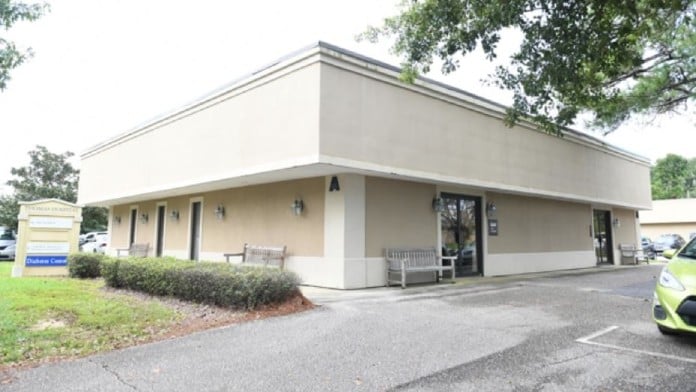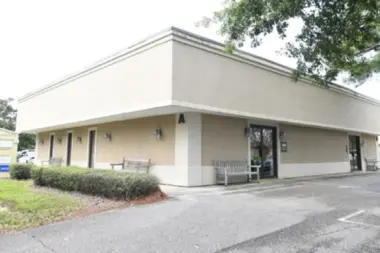About The Harbor
When you’re in day treatment you’ll get therapy Monday through Friday from three to six hours per day for three or four weeks. You can have individual and group therapy, medication management, addiction education, and relapse prevention training. Their approach is pretty varied and you can try things like cognitive behavioral therapy, motivational interviewing (MI), and other evidence-based methods.
You can also find outpatient counseling and mental health day programs. Outpatient counseling provides hour-long therapy sessions and wellness support.
The great thing about them is that you don’t have to go it alone after you finish treatment. They have a lot of aftercare options to keep you healthy and happy and free of substances long after you’re discharged from treatment.
Latest Reviews
Thank you for sharing your experience with us. It's important for us to ensure that every interaction is handled with care and professionalism. Your feedback about the communication issues you faced is valuable, and we will address this with our team to improve our services. If there's anything specific you'd like to discuss further, please feel free to reach out directly.
Best regards,
The Customer Service Team at Thomas Hospital
251-279-2020
Thank you so much for your heartfelt review and for taking the time to share your experience with The Harbor. We are so happy to hear that our program has had such a positive impact on your life. Anita, Josh, and Holly are indeed dedicated to providing compassionate support, and your kind words will surely mean a lot to them.
It is incredibly rewarding to know that we were able to provide you with the tools you needed for your journey. Your recommendation is the highest compliment we could receive, and it inspires us to continue our mission of supporting others in their mental health journeys.
Thank you once again for your feedback. We wish you all the best in your continued growth and well-being.
Warm regards,
The Harbor Team
Thank you so much for your heartfelt review. We are truly touched by your words and are incredibly grateful to have been a part of your journey. Josh, Holly, and Anita are dedicated to making a positive impact, and knowing that they have made such a difference in your life is the highest compliment we could receive. Your feedback inspires us to continue our mission of providing compassionate and effective support. We wish you all the best in your continued journey, and please know that we are always here for you.
Warm regards,
The Harbor Team
Rehab Score
Gallery


Other Forms of Payment
Self-pay involves paying for treatment out of your own pocket. You can use savings or credit, get a personal loan, or receive help from family and friends to fund your treatment. If you don't have insurance or your insurance plan doesn't cover a specific program, self-pay can help ensure you still get the care you need.
Medicaid is a state based program that helps lower-income individuals and families pay for healthcare. Medicaid covers addiction treatment so those enrolled can use their coverage to pay for rehab. When a program accepts Medicaid the client often pays very little or nothing out of their own pocket.
Addiction Treatments
Levels of Care
Outpatient Programs (OP) are for those seeking mental rehab or drug rehab, but who also stay at home every night. The main difference between outpatient treatment (OP) and intensive outpatient treatment (IOP) lies in the amount of hours the patient spends at the facility. Most of the time an outpatient program is designed for someone who has completed an inpatient stay and is looking to continue their growth in recovery. Outpatient is not meant to be the starting point, it is commonly referred to as aftercare.
Intensive Outpatient Programs (IOP) are for those who want or need a very structured treatment program but who also wish to live at home and continue with certain responsibilities (such as work or school). IOP substance abuse treatment programs vary in duration and intensity, and certain outpatient rehab centers will offer individualized treatment programs.
A partial hospitalization program (PHP) provides comprehensive treatment to those who do not require 24/7 monitoring and offers a higher level of care than outpatient programs. Often referred to as "day treatment" patients typically attend sessions a minimum of 20 hours weekly, allowing clients to return home each day. PHP treatment is often covered by insurance and can provide daily therapeutic sessions and services such as relapse prevention and medication management.
Treatments
The goal of treatment for alcoholism is abstinence. Those with poor social support, poor motivation, or psychiatric disorders tend to relapse within a few years of treatment. For these people, success is measured by longer periods of abstinence, reduced use of alcohol, better health, and improved social functioning. Recovery and Maintenance are usually based on 12 step programs and AA meetings.
Drug rehab in Alabama provides medical or psychotherapeutic treatment for drug dependency. Methods of treatment often include a combination of medication, counseling, and recreational therapies.
A combined mental health and substance abuse rehab has the staff and resources available to handle individuals with both mental health and substance abuse issues. It can be challenging to determine where a specific symptom stems from (a mental health issue or an issue related to substance abuse), so mental health and substance abuse professionals are helpful in detangling symptoms and keeping treatment on track.
Opioid rehabs specialize in supporting those recovering from opioid addiction. They treat those suffering from addiction to illegal opioids like heroin, as well as prescription drugs like oxycodone. These centers typically combine both physical as well as mental and emotional support to help stop addiction. Physical support often includes medical detox and subsequent medical support (including medication), and mental support includes in-depth therapy to address the underlying causes of addiction.
You can find comprehensive substance abuse treatment in Alabama. Typically, drug and alcohol rehabs provide a full continuum of care including medically assisted detox, inpatient, outpatient, dual-diagnosis, and partial hospitalization. With a comprehensive substance abuse evaluation, addiction experts provide individualized treatment plans to cater to your individual needs. These programs address substance use disorders using evidence-based therapies like cognitive behavioral therapy (CBT) and dialectical behavioral therapy (DBT), counseling, and recovery support groups.
Addiction treatment includes mental health services while living within a facility–a hospital, clinic, or hotel-like rehab center. Mental health counselors provide care in a safe environment monitored by clinical staff. The typical length of an inpatient program is 28-30 days, but some can last 60-90 days or more. Mental health treatment involves individual and group counseling sessions, addiction and relapse prevention education, and coping skills training.
Programs
Adult rehab programs include therapies tailored to each client's specific needs, goals, and recovery progress. They are tailored to the specific challenges adult clients may face, including family and work pressures and commitments. From inpatient and residential treatment to various levels of outpatient services, there are many options available. Some facilities also help adults work through co-occurring conditions, like anxiety, that can accompany addiction.
Young adulthood can be an exciting, yet difficult, time of transition. Individuals in their late teens to mid-20s face unique stressors related to school, jobs, families, and social circles, which can lead to a rise in substance use. Rehab centers with dedicated young adult programs will include activities and amenities that cater to this age group, with an emphasis on specialized counseling, peer socialization, and ongoing aftercare.
Clinical Services
Whether a marriage or other committed relationship, an intimate partnership is one of the most important aspects of a person's life. Drug and alcohol addiction affects both members of a couple in deep and meaningful ways, as does rehab and recovery. Couples therapy and other couples-focused treatment programs are significant parts of exploring triggers of addiction, as well as learning how to build healthy patterns to support ongoing sobriety.
In individual therapy, a patient meets one-on-one with a trained psychologist or counselor. Therapy is a pivotal part of effective substance abuse treatment, as it often covers root causes of addiction, including challenges faced by the patient in their social, family, and work/school life.
Amenities
-
Private Setting
Contact Information
308 South Greeno Road
Fairhope, AL 36532